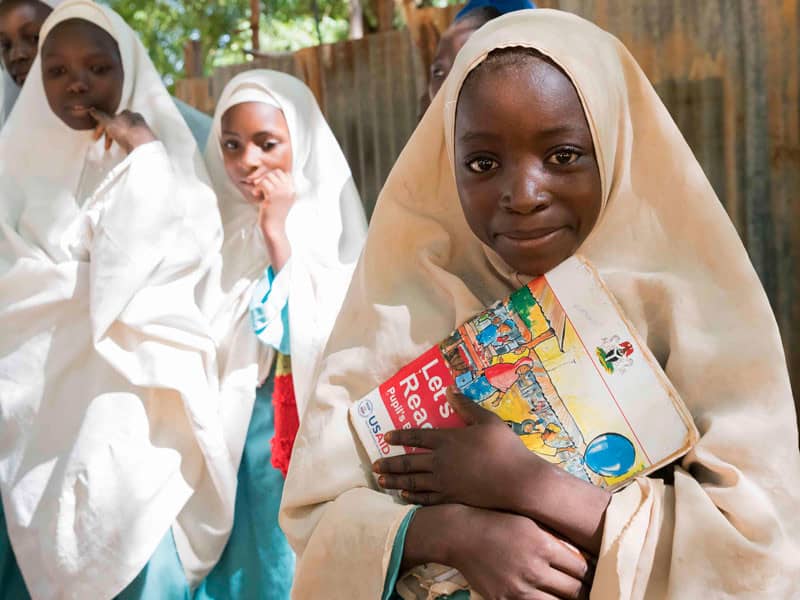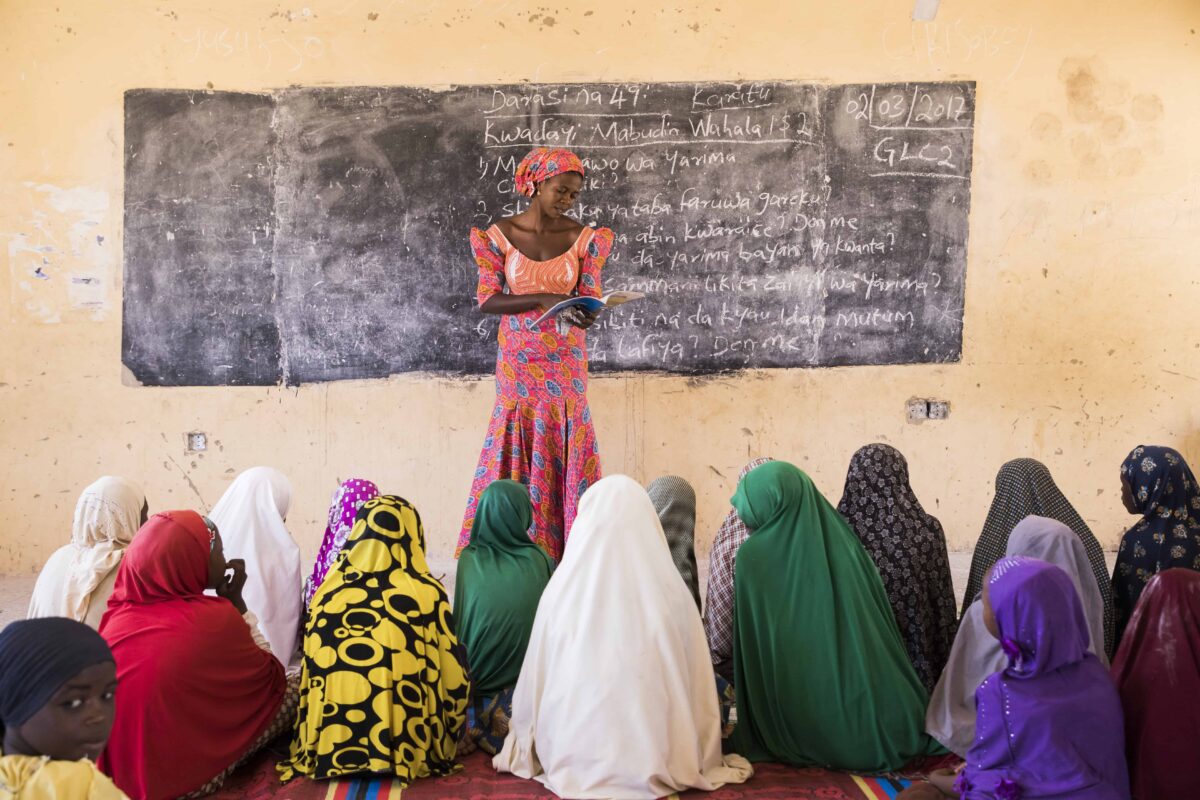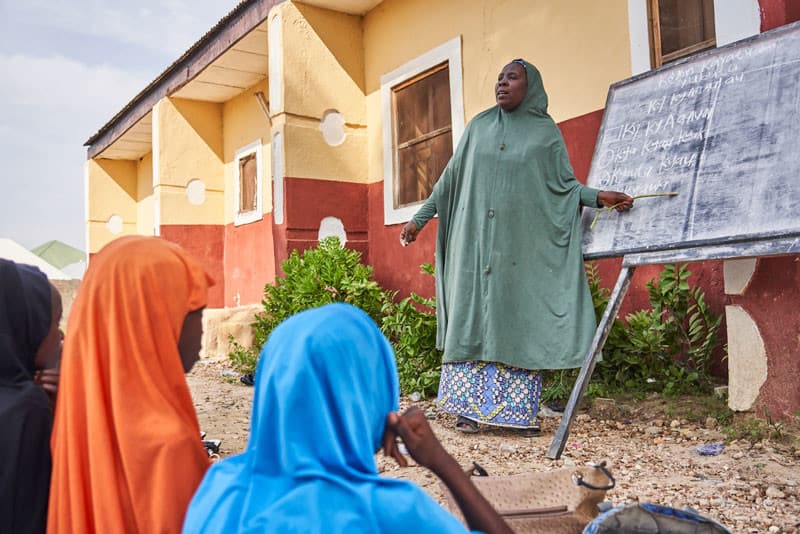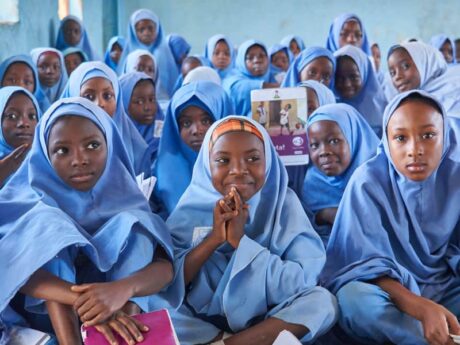With the largest population and economy in Africa and the highest number of out of school children in the world, Nigeria is at a pivotal moment in its development. Educating its population, particularly its out-of-school population, will be critical to the country’s prosperity, say experts.
With parts of the country facing fragility, a lack of accountability, poor teacher quality, inadequate teacher support, weak links between schools and communities, and high absenteeism among teachers and learners, education reform will be challenging.
en este año Comparative and International Education Society Conference, experts discussed the challenges, recent gains and opportunities for Nigeria’s education sector, with a special focus on how early grade reading activities are being monitored and measured.
See below for excerpts from two of those panel discussions.
Coaching to improve literacy instruction
 Evidence consistently shows that coaching is a valuable tool for teacher development in countries with abundant resources, but there is limited evidence to show how this approach is working in low- y países de ingresos medios, incluyendo Nigeria.
Evidence consistently shows that coaching is a valuable tool for teacher development in countries with abundant resources, but there is limited evidence to show how this approach is working in low- y países de ingresos medios, incluyendo Nigeria.
As early grade reading initiatives work toward national expansion, it is important to take an evidence-based look at the effectiveness of coaching in these type of environments, said experts at CIES.
«It is generally accepted in the literature and documented throughout the world that coaching works,» said Mark Anthony Hamilton, Senior Reading Advisor for the USAID-funded Iniciativa de Educación del Norte Plus project during a panel on coaching.
Implementado por Creative Associates Internacional, the Northern Education Initiative Plus is working to strengthen systems in Bauchi and Sokoto states to provide access to and improve the quality of education, particularmente en lectura de primeros grados. It aims to improve reading outcomes for more than a million children.
Coaching is an important tool used by the project to strengthen local capacity. School support officers serve as coaches to early grade reading instructors and are critical to the success of this strategy.
«What we’re trying to do is get coaches to take a step back and really see if teachers re teaching and learners are learning,” said Hamilton.
Sin embargo, despite being trained as coaches through the project, school support officers have largely reverted to administrative roles because of a lack of system capacity at the local government level.
The introduction of a Local Education Monitoring Approach has since helped identify gaps in teaching and learning inputs, raising awareness among stakeholders of the value of readily-available data to improve education outcomes. Todavía, Hamilton noted that the quality of the LEMA data on coaching has relied too heavily on self-reporting.
Hamilton explained that a recent addition of tablet-based reporting tools for school support officers is beginning to address these issues while providing reliable data on coaching and other inputs in real time.
When combined, the Local Education Monitoring Approach and tech tools can provide much-needed information on state and local government capacities to support education quality. The results are both surprising and instructive, given the often-persistent misconceptions in Nigeria and internationally about the potential – or lack thereof – of technology to improve outcomes in poorly-resourced education systems.
The bottom line: Do invest in coaching. But be sure to provide resources and tools to monitor the success of coaching efforts and adapt as needed.
The problem with EGRA and the path forward
 In another conference panel titled “National policy perspectives on learning assessment and the future of early grade reading in Nigeria,” Hamilton and education professionals from the Nigerian Ministry of Education, Universal Basic Education Commission, Chemonics y USAID discussed how early grade reading assessment is impacting the education space in Nigeria.
In another conference panel titled “National policy perspectives on learning assessment and the future of early grade reading in Nigeria,” Hamilton and education professionals from the Nigerian Ministry of Education, Universal Basic Education Commission, Chemonics y USAID discussed how early grade reading assessment is impacting the education space in Nigeria.
As reading becomes increasingly prominent in Nigeria’s national education policy dialogue, decision-makers are weighing how to best make use of early grade reading assessment (EGRA) to drive the policy reform dialogue and efforts to improve the access and quality of reading education.
Panelist Melissa Chiappetta of USAID reminded participants that: “The EGRA is only as good as the quality of the tool and the quality of the methodology.””
Chiappetta said that in her work across EGRA instruments she has seen, “that we suffer from [pobre] quality in many places and because we’ve been so project-based oftentimes they are not comparable over time.”
Chiappetta recounted how, during a session she presented at earlier in the week, she had the audience read a passage from an early grade reading assessment and then take the comprehension test. In the room of around 40 people – all highly educated English speakers – only five got all the answers correct.
“We’re expecting grade two students to answer these questions. If we can’t do it ourselves, how can we expect them to?” she asked, highlighting the importance of instrument quality.
While there is room to improve EGRA, it is still an important tool. Chiappetta said that in Nigeria, and beyond, EGRA is allowing education specialists to think about language of instruction, helping to set benchmarks and inform policy adjustment.
The bottom line: EGRA is valuable and allows for education improvements as long as the tool and methodology are of high-quality.



